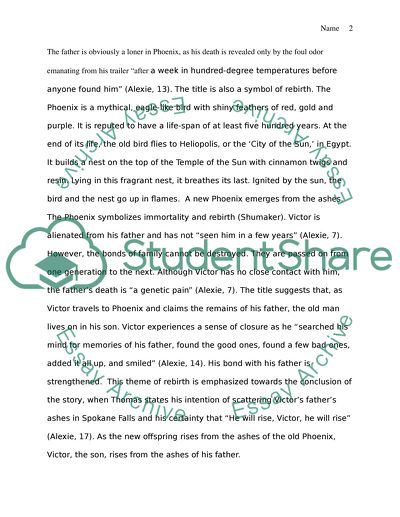Cite this document
(“This Is What It Means to Say Phoenix, Arizona by Sherman Alexie Essay”, n.d.)
Retrieved from https://studentshare.org/literature/1624078-this-is-what-it-means-to-say-phoenix-arizona-by-sherman-alexie
Retrieved from https://studentshare.org/literature/1624078-this-is-what-it-means-to-say-phoenix-arizona-by-sherman-alexie
(This Is What It Means to Say Phoenix, Arizona by Sherman Alexie Essay)
https://studentshare.org/literature/1624078-this-is-what-it-means-to-say-phoenix-arizona-by-sherman-alexie.
https://studentshare.org/literature/1624078-this-is-what-it-means-to-say-phoenix-arizona-by-sherman-alexie.
“This Is What It Means to Say Phoenix, Arizona by Sherman Alexie Essay”, n.d. https://studentshare.org/literature/1624078-this-is-what-it-means-to-say-phoenix-arizona-by-sherman-alexie.


